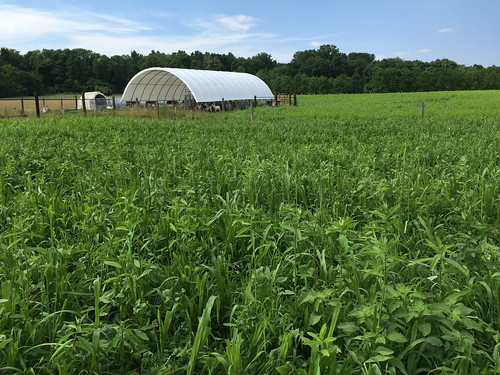The present test has run its course. High levels of parasite infection, coupled with lack of efficacy of the anthelmintics (dewormers) has resulted in too many goats being unable to adapt to test conditions.
 |
| 2016 was the 11th year of the test. |
A new test will be considered for 2018. Many changes would be necessary, including 1) lower stocking rates (fewer goats); 2) selection of out-of-state goats based on a lottery system; 3) strict enforcement of minimum weight requirement (40 lbs); 4) grass-free laneway; 5) different supplementation strategy; and 6) removal of sheep from the grazing system.
Dealing with the high level of anthelmintic resistance is a more difficult challenge. Requiring a fecal egg count reduction of 95% or more (the research standard) would result in few goats remaining in the test. Goats with zero or low egg counts would also have to be eliminated if their egg counts went up significantly after the sequential deworming, as this is indicative of resistant immature warms.
The dewormer resistance doesn't mean a goat can't be effectively treated, as combination treatments usually allieve clinical symptoms (anemia and bottle jaw), but resistance makes it difficult to get valid fecal egg count (resistance) data. Parasite resistance has always been the trademark of the Maryland test.
Comments and suggestions are always welcome. Send to schoen@umd.edu.











